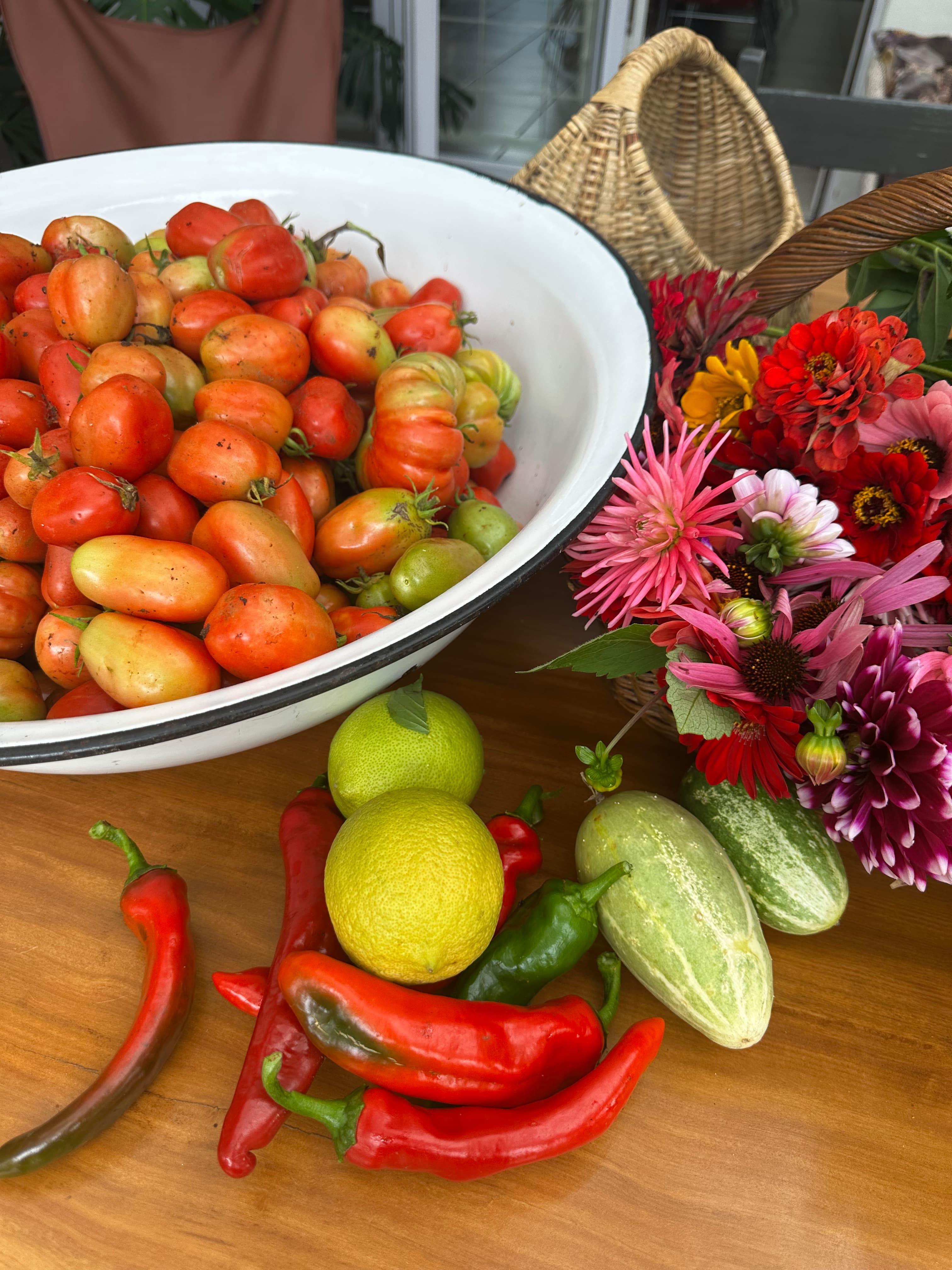Slowsteading is a rewarding and meaningful lifestyle to develop and incorporate into your reality. So much of what stresses us out in life can be addressed by slowing down and investing in more meaningful activities. Unfortunately, slowsteading cannot be added to a cluttered, dysfunctional existence.
At the end of last year, I wrote about the four steps of developing a manageable and individually tailored slowsteading lifestyle. This week’s blog addresses the psychological impact that clutter can have. I propose that it is worth the effort to assess your habits and behavior and determine if you can make changes that will free up mental and physical space in your life.

The following piece is an excerpt from Chapter 2, Consequences of Clutter, of my book “What If I Don’t Have Enough.”
If We Understand the Reciprocal Effect of Clutter
Clutter is not so much about casting away or letting go but about gaining something more valuable: time, harmony, space, energy, and freedom.
The Mess Effect
How does the brain react to mental and physical clutter? Researchers have found that clutter affects our brains cumulatively because the constant reminders of disorganization drain our cognitive resources and overload our brains. Our brains prefer order, and the continuous visual reminders of disorder reduce our focus and working memory.
Additionally, research highlights the relationship between clutter and stress levels. Clutter significantly increases cortisol (a stress hormone) levels in the brain. When you need to move things around to accomplish simple tasks, you may already have a stress-inducing clutter problem. Clutter is also linked to procrastination.
For example, none of us enjoy clearing our mailboxes of daily junk mail and marketing, so the mess intensifies, feeding the cycle of frustration and anxiety through neglect and senseless hoarding.
Assistant psychology professor Darby Saxbe from the University of Southern California found that women who perceive their homes as cluttered generally start their day stressed and remain stressed throughout the day. This is often compounded by added housework and chores. Dr. Saxbe noted that “Clutter is in the eye of the beholder” and “The people who talked about it were the ones who had the cortisol response” (Le Beau Lucchesi, 2019).
This is just one study demonstrating the negative correlation between clutter and stress. The mess effect is real, and regaining control over decluttering drudgery becomes a never-ending challenge. Physical clutter outside contributes to mental clutter inside.
As Without, So Within
Raised cortisol levels and higher anxiety are just one example of clutter’s negative impact on well-being. Other issues include:
- Subconscious low fight-or-flight responses that exhaust survival resources.
- Struggles with illness, digestion, and weight issues.
- Increased blood pressure, poor digestion, sleep interference, and respiratory problems due to dust-collecting clutter.
Clutter can also become a fire hazard and negatively impact eating habits. People often turn to takeout or fast food instead of preparing meals, which exacerbates health problems and creates more clutter.
The Effect of Too Much Complexity
Most psychoses result from too much life complexity. We tend to break at our weakest points. By shifting our perspective on clutter and its consequences, we can develop awareness that motivates action.
Clutter isn’t about losing things but simplifying them into harmony. Material, technological, psychological, relational, and societal complexities demand too much from us. The solution is to simplify and organize these complexities, gaining freedom and tranquility in return. The goal is simplicity, not simply losing stuff.
Bad habits often contribute to clutter: tossing keys on the table, leaving shoes on the kitchen floor, or abandoning the remote on the couch. Deliberately organizing against these habits with solutions like a shoe rack, a remote basket, or a key hook brings harmony.
Clutter doesn’t always mean too many things; it may just reflect poor organization. Simplifying and organizing balances our mental state.
Your Home as a Retreat
Our homes should be retreats, not prisons. Our minds should be calm, not anxious. Taking responsibility for our lifestyle is an ongoing journey. I find it encouraging to know others prioritize their lifestyle and family life.
If you found this excerpt helpful, I encourage you to read the full Declutter Me series. It’s a guide to organizing your life, being content with your reality, and finding fulfillment in daily existence.